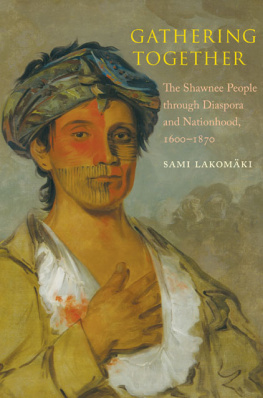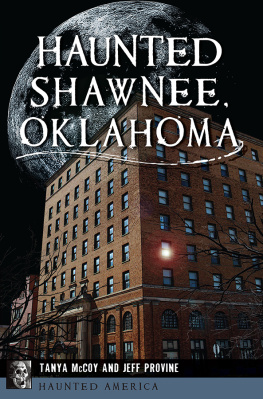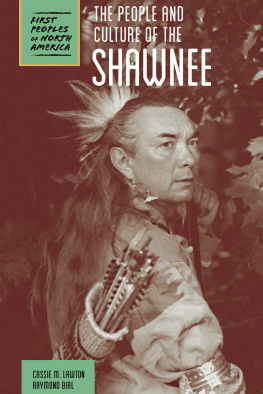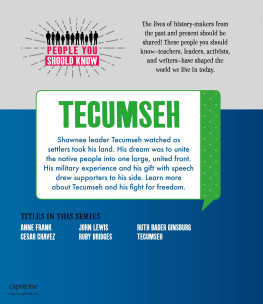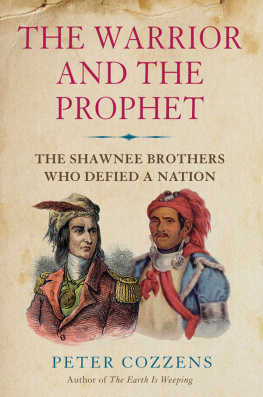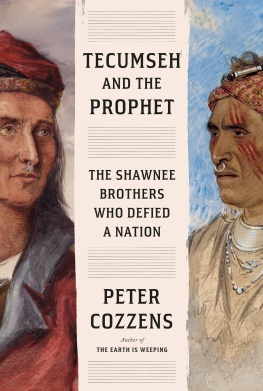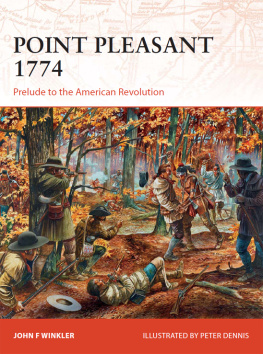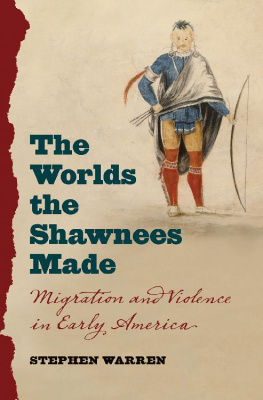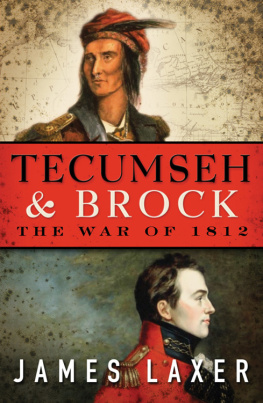
THE LAMAR SERIES IN WESTERN HISTORY
The Lamar Series in Western History includes scholarly books of general public interest that enhance the understanding of human affairs in the American West and contribute to a wider understanding of the West's significance in the political, social, and cultural life of America. Comprising works of the highest quality, the series aims to increase the range and vitality of Western American history, focusing on frontier places and people, Indian and ethnic communities, the urban West and the environment, and the art and illustrated history of the American West.
Editorial Board
Howard R. Lamar, Sterling Professor of History Emeritus, Past President of Yale University
William J. Cronon, University of WisconsinMadison
Philip J. Deloria, University of Michigan
John Mack Faragher, Yale University
Jay Gitlin, Yale University
George A. Miles, Beinecke Library, Yale University
Martha A. Sandweiss, Princeton University
Virginia J. Scharff, University of New Mexico
Robert M. Utley, Former Chief Historian, National Park Service
Recent Titles
Gathering Together: The Shawnee People through Diaspora and Nationhood, 16001870, by Sami Lakomki
Nature's Noblemen: Transatlantic Masculinities and the Nineteenth-Century American West, by Monica Rico
Rush to Gold: The French and the California Gold Rush, 18481854, by Malcolm J. Rohrbough
Sun Chief: The Autobiography of a Hopi Indian, by Don C. Talayesva, edited by Leo Simmons, Second Edition
Before L.A.: Race, Space, and Municipal Power in Los Angeles, 17811894, by David Samuel Torres-Rouff
Geronimo, by Robert M. Utley
Forthcoming Titles
George I. Snchez: The Long Fight for Mexican American Integration, by Carlos Kevin Blanton
The Yaquis and the Empire: Violence, Spanish Imperial Power, and Native Resilience in Colonial Mexico, by Raphael Brewster Folsom
American Genocide: The California Indian Catastrophe, 18461873, by Benjamin Madley
The Cherokee Diaspora, by Gregory Smithers
Ned Kelly and Billy the Kid, by Robert Utley

Copyright 2014 by Yale University.
All rights reserved.
This book may not be reproduced, in whole or in part, including illustrations, in any form (beyond that copying permitted by Sections 107 and 108 of the U.S. Copyright Law and except by reviewers for the public press), without written permission from the publishers.
Yale University Press books may be purchased in quantity for educational, business, or promotional use. For information, please e-mail (U.K. office).
Set in Electra type by IDS Infotech Ltd., Chandigarh, India.
Printed in the United States of America.
Library of Congress Cataloging-in-Publication Data Lakomki, Sami.
Gathering together: the Shawnee people through diaspora and nationhood, 16001870 / Sami Lakomaki.
pages cm.(The Lamar series in Western history)
Includes bibliographical references and index.
ISBN 978-0-300-18061-9 (hardback)
1. Shawnee IndiansHistory. 2. Shawnee IndiansSocial life and customs. I. Title.
E99.S35.L34 2014
974.00497317dc23
2014000586
A catalogue record for this book is available from the British Library.
This paper meets the requirements of ANSI/NISO Z39.481992 (Permanence of Paper).
10 9 8 7 6 5 4 3 2 1

CONTENTS

ACKNOWLEDGMENTS
Researching and writing this book has taken some fifteen years, although for a long time I had no idea that what I was then doing would eventually become a book. During all this time I have been fortunate in having great mentors, colleagues, and friends without whose guidance, generosity, and company I would never have been able to finishor even startthis book. First and foremost, I wish to thank Professor R. David Edmunds. In 2009 he agreed to become what in Finland is called the opponent in my doctoral defense. In that capacity, he offered a careful and encouraging assessment of my dissertation (and kindly made the public examination a relatively painless experience for me); later, he continued to advise me patiently on how to turn a rather unreadable thesis into a book. When I moved to Dallas to research and write, he helped me to feel at home in the unfamiliar landscapefor example, by guiding me to the best places to eat. Throughout, Dave's own scholarship has been a constant source of inspiration for me, as well as a model that I have sought to emulate in my work.
Several other individuals, too, read and commented on the manuscript or parts of it at various stages, helping me tremendously to sharpen my arguments and improve my writing. I thank especially Stephen Aron, Daniel Richter, Colin Calloway, John Wunder, Gunlg Fur, Ben Johnson, Sherry Smith, Stephen Warren, Edward Countryman, Andrs Resndez, Michael Coleman, Matt Liebmann, Jason Mellard, Dan Arreola, Rani Andersson, Hannu Heikkinen, Markku Henriksson, Jukka Pennanen, Riitta Leinonen, and the anonymous reader for Yale University Press for their thoughtful feedback, suggestions, and critiques. I am likewise grateful to all who participated in my manuscript workshop at the Clements Center for Southwest Studies for their comments and the stimulating discussion. Numerous conversations with Rob Harper, David Preston, Laura Keenan Spero, and James Buss proved invaluable for my work, as did the panel on Shawnee history that Laura invited me to organize with her at the 2011 SHEAR meeting in Philadelphia. Tom Arne Midtrd, Penelope Drooker, and A. Gwynn Henderson generously shared their research with me. Various parts of this book first came into being as conference papers, and I benefited greatly from the comments received at those occasions from many of the people already named and several others. Special thanks here to Christina Snyder.
I am greatly indebted to Andrew Warrior, Henryetta Ellis, Leroy Ellis, Karen Kaniatobe, and other Shawnees who not only patiently discussed my research with me but also made me more aware of contemporary Shawnee life and the politics of research.
Much of the research and most of the writing for this book took place at the Clements Center for Southwest Studies at Southern Methodist University in Dallas. I cannot think of a more inspiring, productive, and hospitable place to work; the people at the center and the Department of History made my time at SMU a great professional and personal experience. I thank especially Ben Johnson, Andrew Graybill, Andrea Boardman, and Ruth Ann Elmore for their friendship and guidance of various kinds (which often extended to rather mundane issues such as finding furniture and making sense of such American oddities as checks). At the last stages of writing, the support and friendship of my colleagues in the Program of Cultural Anthropology at the University of Oulu were likewise immensely important to me (not least because they helped me to survive the oddities of Finnish academia that far surpass anything mere checks have to offer).
Various institutions have supported my research financially. I would not have been able to write this book without grants and fellowships from the Clements Center for Southwest Studies, the Academy of Finland, the Fulbright Center, and the Finnish Cultural Foundation. I am also grateful to Jessie Dolch and the people at Yale University Press for their expertise and professionalism in producing this book. Many thanks likewise to Terhi Tanska, who drew all the maps.
Next page
